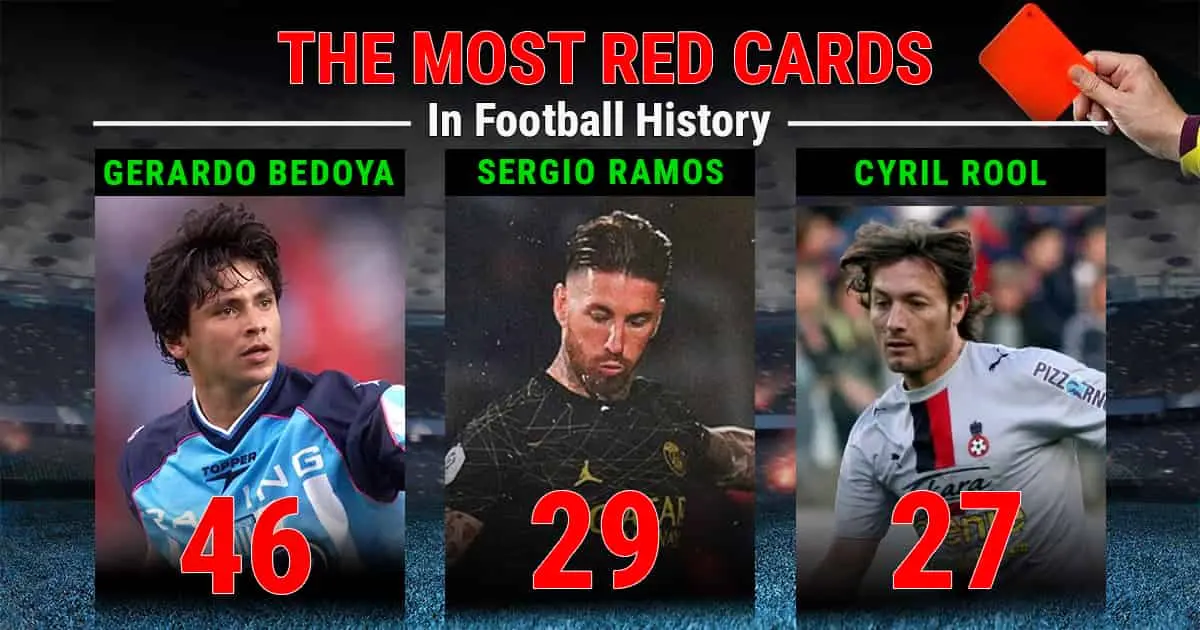
The Quest for Glory: Ranking the UEFA Champions League Title Contenders
The UEFA Champions League, football’s most prestigious club competition, is a crucible of talent, tactics, and raw emotion. Every season, the continent’s elite clash, driven by the dream of lifting the iconic ‘Big-Eared’ trophy. While unpredictability is a hallmark of this tournament, certain teams invariably stand out as front-runners, possessing the blend of quality, depth, and experience required to navigate its treacherous knockout stages.
As we delve deeper into the current campaign, the contenders begin to separate themselves from the hopefuls. Injuries, form, tactical evolutions, and the sheer mental fortitude to perform under immense pressure will all play their part. Here, we rank the top contenders for the Champions League crown, analyzing their strengths, weaknesses, and what might tip the scales in their favor.
1. Manchester City: The Reigning Monarchs with Unmatched Depth
Why they are number one: Manchester City isn’t just a team; they are a finely tuned, dominant machine. Their triumph last season, securing the elusive treble, was the culmination of years of meticulous planning under Pep Guardiola. This season, they carry the confidence of champions, coupled with an even more mature understanding of what it takes to conquer Europe. Erling Haaland continues to be their relentless goal-scoring spearhead, but their strength extends far beyond him. Rodri anchors the midfield with unparalleled control, while the likes of Phil Foden, Bernardo Silva, and the returning Kevin De Bruyne (when fit) provide creativity and incision. Their squad depth is arguably the best in Europe, allowing Guardiola to rotate and adapt without significant drop-offs in quality. Their ability to control games, suffocate opponents with possession, and unleash devastating attacking transitions makes them incredibly difficult to beat over two legs.
Potential Weaknesses: The biggest challenge for City might be self-motivation and avoiding complacency after achieving their ultimate goal. While their depth is a strength, managing the minutes and keeping every player sharp and hungry throughout a long season will be crucial. An over-reliance on Haaland, should he face a prolonged dry spell or injury, could also be a minor concern, though their system is designed to create chances for others.
Key to Victory: Maintaining their defensive solidity, keeping their star players fit, and ensuring the collective hunger remains as fierce as ever. Guardiola’s tactical adaptability in crucial knockout ties will also be key.
2. Real Madrid: The Kings of Europe with Renewed Vigor
Why they are number two: Real Madrid and the Champions League are synonymous. With a record 14 titles, their pedigree in this competition is unmatched, and they possess an intangible ‘UCL DNA’ that allows them to defy logic and triumph in the most improbable scenarios. This season, they look revitalized, particularly with the sensational arrival of Jude Bellingham, who has seamlessly integrated and elevated their midfield and goal-scoring threat. Vinicius Jr. remains one of the most electrifying wingers in the world, capable of turning games on his own. Carlo Ancelotti’s calm demeanor and tactical astuteness are perfect for navigating the high-pressure environment of European nights. Their ability to absorb pressure and then strike with devastating counter-attacks, often led by Vinicius and Rodrygo, makes them a constant threat.
Potential Weaknesses: Defensive vulnerabilities have sometimes emerged, particularly when facing high-pressing teams. The reliance on a relatively thin attacking line, especially after Karim Benzema’s departure, could be an issue if injuries strike. While Bellingham has been phenomenal, the sustained form of their veteran midfielders (Modric, Kroos) throughout the demanding latter stages will also be a factor.
Key to Victory: Bellingham continuing his incredible form, Vinicius Jr. staying fit and clinical, and the defense holding firm against top-tier attacks. The ‘Bernabéu factor’ in knockout rounds remains a significant advantage.
3. Bayern Munich: Bavarian Powerhouse with Kane’s Firepower
Why they are number three: Bayern Munich are perennial contenders, and the arrival of Harry Kane has provided them with the clinical, world-class number nine they arguably lacked since Robert Lewandowski’s departure. Kane’s immediate impact, both in terms of goals and overall playmaking, has made Bayern even more formidable. With Leroy Sané and Kingsley Coman providing pace and directness on the wings, and Jamal Musiala orchestrating from midfield, their attack is devastating. Defensively, Matthijs de Ligt and Dayot Upamecano provide a strong foundation, while Manuel Neuer remains one of the best goalkeepers in the world. Thomas Tuchel, a Champions League winner, is a manager who understands how to set up a team for knockout football.
Potential Weaknesses: While their starting XI is elite, concerns linger about their squad depth compared to City or Real Madrid, particularly in central midfield and defensive full-back positions. Tuchel’s tactical approach can sometimes be unpredictable, and consistency across all competitions has been an issue at times. The pressure on Kane to deliver in big European nights, having yet to win major silverware, could also be a factor.
Key to Victory: Kane maintaining his prolific form, Musiala staying fit and influential, and Tuchel finding the right balance and consistency in his tactical setup for the biggest matches.
4. Arsenal: The Resurgent Gunners with Youthful Exuberance
Why they are number four: Arsenal’s return to the Champions League has been nothing short of spectacular, showcasing a team that has matured immensely under Mikel Arteta. Their youthful exuberance, combined with a clear tactical identity, makes them a formidable opponent. Bukayo Saka and Gabriel Martinelli provide pace and cutting edge on the wings, Martin Ødegaard is a masterful orchestrator in midfield, and Declan Rice has added immense defensive solidity and leadership. Their high-pressing game and intricate attacking patterns can overwhelm opponents. They play with a confidence and fearlessness that can be contagious, and their strong domestic form indicates a team ready to compete at the highest level.
Potential Weaknesses: The primary concern for Arsenal is their relative inexperience in the latter stages of the Champions League. Many of their key players are navigating the pressures of European knockout football for the first time. Squad depth, especially in defensive areas and up front, could also be tested by injuries. Their mental fortitude in high-stakes moments, having faltered slightly in the Premier League title race last season, will be under scrutiny.
Key to Victory: Their young stars embracing the pressure, avoiding crucial injuries, and Arteta’s ability to adapt tactically against more experienced European opponents.
5. Paris Saint-Germain: The Enigma with Mbappé’s Brilliance
Why they are number five: PSG remains an enigma in the Champions League, consistently failing to deliver on their immense investment. However, under Luis Enrique, there’s a discernible shift towards a more coherent team identity, moving away from a mere collection of superstars. Kylian Mbappé remains their undisputed talisman, a player capable of winning games single-handedly with his blistering pace and clinical finishing. The additions of Ousmane Dembélé and Randal Kolo Muani have added more directness and dynamism to their attack. Defensively, Marquinhos and Milan Skriniar provide a solid base. If Enrique can instill a consistent defensive discipline and unlock the full potential of his attacking talents in a structured system, PSG could finally make a deep run.
Potential Weaknesses: The perennial ‘choke’ factor in crucial Champions League ties looms large over PSG. Defensive lapses have plagued them in the past, and the midfield can sometimes be overrun. The ongoing speculation surrounding Mbappé’s future could also be a distraction. They still lack the tactical maturity and collective grit seen in the very top contenders.
Key to Victory: Mbappé’s sustained brilliance, the new attacking trident gelling effectively, and Enrique finally instilling a consistent tactical and mental discipline across the entire squad.
6. Atlético Madrid: Simeone’s Pragmatic Powerhouse
Why they are number six: Under Diego Simeone, Atlético Madrid is a masterclass in tactical discipline, defensive resilience, and shrewd counter-attacking football. They are the team nobody wants to face, known for suffocating opponents and exploiting even the slightest error. Antoine Griezmann is enjoying a career resurgence, acting as their creative hub and primary goalscorer, while Álvaro Morata provides a strong presence up front. Their defense, marshaled by the likes of Jan Oblak and Jose Giménez, is notoriously difficult to break down. When they click, their combination of grit and opportunistic brilliance can overcome even the most star-studded teams.
Potential Weaknesses: Their pragmatic style can sometimes lead to a lack of offensive firepower, making it difficult to break down equally well-organized defenses. They can also be susceptible to moments of individual brilliance from opposition attackers if their defensive structure is momentarily breached. Their reliance on Griezmann for creativity is significant.
Key to Victory: Griezmann continuing to perform at an elite level, their defense remaining impenetrable, and Simeone executing his tactical masterclass in key knockout ties.
7. Barcelona: The Rebuilding Giants with Youthful Promise
Why they are number seven: Barcelona, despite their well-documented financial struggles, remains a force in European football, driven by a philosophy of attractive, possession-based play. Their strength lies in their prodigious young talents: Pedri, Gavi, and the sensational Lamine Yamal, who represent the future of the club. Robert Lewandowski, despite his age, remains a prolific goalscorer. Xavi Hernández is attempting to rebuild a competitive squad, emphasizing control and quick transitions. When their young midfielders are on form, they can dictate the tempo of any match.
Potential Weaknesses: Squad depth is a significant concern, particularly in key defensive positions and up front. Injuries to vital players like Pedri or Gavi could severely hamper their ambitions. Defensive consistency has been an issue, and they can be vulnerable to direct, fast-paced attacks. Their big-game mentality in Europe has also been questioned in recent seasons.
Key to Victory: Their young core staying fit and continuing their rapid development, Lewandowski finding his clinical best, and Xavi successfully instilling a robust defensive structure to complement their attacking flair.
Honorable Mentions & Dark Horses:
- Liverpool: Under Jürgen Klopp, Liverpool always possess the attacking firepower and relentless intensity to challenge. However, defensive inconsistencies and potential fatigue from their high-energy style could be hurdles. If they hit their stride, their Anfield factor is unparalleled.
- Inter Milan: Last season’s finalists showed incredible grit and tactical discipline. While perhaps lacking the individual star power of the top contenders, their collective strength, defensive solidity, and Lautaro Martínez’s goal-scoring prowess make them a dangerous outsider.
- Borussia Dortmund: Known for their exciting young talent and passionate home support, Dortmund can spring surprises. However, their defensive vulnerabilities and occasional inconsistency often prevent them from going all the way.
Factors Influencing Victory:
Beyond individual team strengths, several overarching factors will dictate who lifts the trophy:
- Injuries: A single key injury can derail a campaign, especially in the later stages.
- Form: Peaking at the right time, particularly in February-May, is crucial.
- Tactical Adaptability: Managers who can adjust their game plan to counter specific opponents or in-game situations often prevail.
- Mentality & Experience: The ability to handle pressure, bounce back from setbacks, and perform on the biggest stage is invaluable.
- Luck: The bounce of the ball, refereeing decisions, and favorable draws can all play a role.
The Champions League is a marathon, not a sprint, culminating in a single, high-stakes final. While Manchester City and Real Madrid appear to be the most complete packages, the beauty of this competition lies in its unpredictability. As the knockout stages loom, the intensity will only grow, promising another unforgettable chapter in the quest for European glory.



